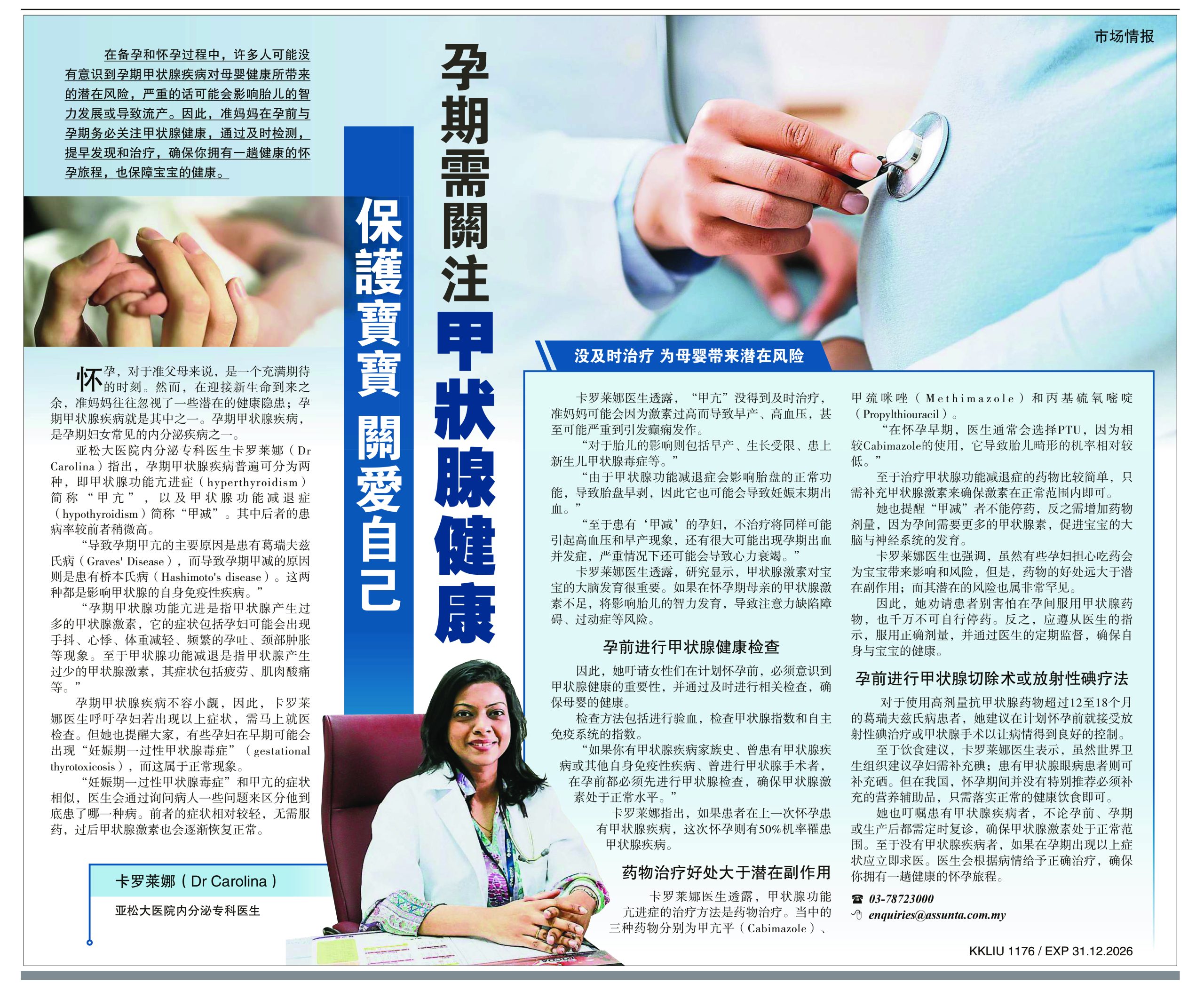There’s no denying it – developing nations like Malaysia are slowly but surely moving towards an ageing society. With better hygiene, healthcare systems and standards of living, more people are living longer than before. People today will have to deal with the many health and psychological issues related to menopause, which includes sexual well-being.
Sexuality does not just refer to intercourse but also involves all aspects of a marriage or relationship. The truth is intimacy forms a crucial part of a relationship, although many couples do not like to discuss their bedroom problems. As couples grow in years, it becomes increasingly important to:
Recognise the changes in the body especially in women after menopause
Menopause refers to a stop to the reproductive stage of a woman’s life, which usually takes place at the age of 50-55. People often joke that ‘men-no-pause’ because they can continue to produce sperm right up to the end of their lives. With modern medications available to boost male sexuality, many relationships suffer when the male partner is sexually active but the female partner does not respond due to bodily changes after menopause.
Seek treatment or solutions in the event there are unpleasant symptoms
Not every woman has a difficult menopause. Some women breeze through it with minor or hardly any symptoms, while others turn into a total monster during this trying period of their lives when their oestrogen levels drop drastically. Although menopause is not a ‘disease’ per se, it is an inevitable part of ageing that every woman will undergo past the age of 50. If the symptoms are too distressing, it is advisable to seek advice and/or treatment until the menopausal stage is over.
Keep the lines of communication open

Sexuality encompasses a wide spectrum of human behaviour; apart from the physical aspects, there are also cultural and societal considerations that are often overlooked. For instance, in some cultures, public displays of affection such as holding hands or hugging are frowned upon. In many Asian cultures especially, matured people are expected to ‘behave their age’. Understanding your own and your partner’s cultural and societal background will help bridge any potential misunderstanding, especially when there is a mismatch of sexual desire. Discussing any medical conditions that may contribute to that also helps prevent suspicions of infidelity or a loss of love.
SEXUAL PROBLEMS AFTER MENOPAUSE
The hormones that affect sexual desire are estrogen and testosterone. Estrogen is known as the ‘female hormone’ because it affects many aspects of a woman’s body, including sexuality. Women also have small amounts of the hormone testosterone, which also dips after menopause.
In many cases, the main issue stems from a lack of desire. When desire is lacking, a woman will still experience pain even with adequate arousal, which in turn reduces sexual libido further.
It is important to know the factors affecting the lack of desire so as to offer the right treatment. Treating the genital area will not help if the underlying issue is a lack of desire. Other issues affecting sexual desire include:
Physical factors: As we age, we will have decreased fitness and flexibility. Some may also have issues with body image such as feeling fat, droopy breasts, less supple skin, freckles and blemished skin, etc. Instead of considering cosmetic surgery as a quick fix, start exercising and changing to a healthy diet to bring back some youthful vitality.
Hormonal changes: The loss of estrogen after menopause affects the vaginal tract in various ways- the clitoris becomes smaller, the labial flattens, genital glands produce less secretion (making the vagina dry), the vagina becomes shorter, narrower and less elastic. The skin at the vagina walls also become thinner and tear more easily. The natural bacteria that exists at the vagina area also becomes less, making postmenopausal women more prone to infections. With the reduction in estrogen, the vagina becomes dry, itchy and pain during sexual intercourse. Sometimes, bacterial overgrowth may lead to a persistent irritating vaginal discharge. Without treatment, the symptoms tend to worsen over time. A number of studies indicate a strong causal link between pain with intercourse and declining sexual desire.
Sensory changes: The sense of skin, taste and smell are reduced. This brings about poor nutrition due to low appetite and a general loss of zest for life. Sensory therapies such as massage, yoga, taichi or gardening that regulate the mind, body and soul are recommended to boost the senses and regain interest in life around us.
Concurrent illness of self or partner: As we age, the tendency for illnesses such as heart problems, respiratory problems, depression, diabetes, erectile dysfunction and others will rise. Medications for these conditions may lower sexual libido, but couples can still remain close by retaining physical intimacy such as kissing, cuddling or hugging.
External distractions: Women more likely to be affected by external pressures- stress, tiredness, lack of sleep, family problems such as caring for grandchildren, financial problems upon retirement. Being more emotionally-inclined, these will affect the mood of women in the bedroom. After menopause, it will take a longer time and more effort to get aroused, such as more tender loving care.
STAYING SEXY AFTER FIFTY

The good news is that women can still enjoy a healthy sex life even after menopause by changing their lifestyles to suit their physical changes and taking the necessary menopause treatments. Here are some tips:
- Keep your vagina lubricated with lubricants, estrogen cream and vaginal moisturizers so that sexual intercourse is more comfortable and pleasurable. Consider your bedroom problems as health/medical concerns and discuss them with your doctor readily to seek solutions.
- Sexual pleasure, and readiness to discuss these issues, has a strong cultural overlay – several studies have indicated that sexual expectations may be different in cultures where sex is closely linked to procreation or where sex is ranked as not particularly important. Problems arise in a marriage/relationship when your partner does not feel the same way.
- Many women regard physical changes to the body as an inevitable part of the ageing process and may feel that nothing can be done. This is no longer true in the 21st century. With an average lifespan of 78, many women may be spending three decades or more of their lives post-menopausal stage. It is crucial to take care of every aspect of our lives, including sexual problems.
- Have regular check-ups, distress, keep a healthy diet, have enough sleep and sunshine, reduce alcohol consumption and cigarettes and speak to a doctor if you are experience problems due to menopause. Only with good health and vitality will you be able to enjoy a good quality of life in your Golden Years!
Related Articles

Exploring The Intersection of ENT Health and Diving Medicine: A Guide for Healthcare Professionals
Read More »









